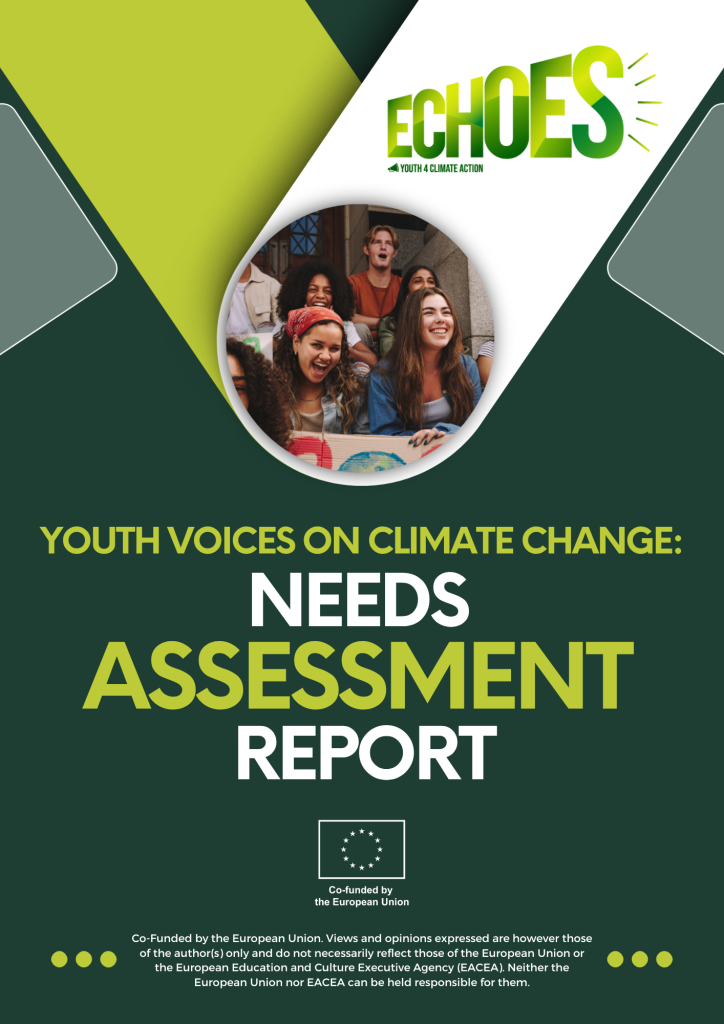Needs Analysis Summary – ECHOES Project

The needs analysis carried out as part of the ongoing European ECHOES project unveils that while youth workers indicate strong awareness of climate issues, young people demonstrate more mixed awareness and confidence. For both groups, climate change is a major concern, and they identify industry and poor government policies as the main contributors to this issue. There is, however, a shared sense of disappointment: most consider government efforts on climate change to be inadequate, and young people, in particular, feel excluded from decision-making processes.
Environmental anxiety is widespread, with more than half of respondents indicating an emotional impact. Youth workers usually use academic and official channels to obtain information, while young people mostly trust social media and their peers. For both groups, personal climate actions like saving energy, reducing waste, and using sustainable transportation are common, while youth workers are more likely to engage in advocacy and volunteering.
The main constraints involve inadequate funding, restricted access to policymakers, lack of climate education, and insufficient mental health support. To enhance involvement, interviewees highlight the importance of training, educational methodologies, networking initiatives, and virtual tools. Youth workers focus on campaign design, in-depth data analysis, and well- organized training, while young people concentrate on social media, petitions, and visible role models.
The report recommends investing in skills development (media, public speaking, campaign design, networking), digital empowerment (social media advocacy, e-learning, applications) and the use of educational resources (videos, workshops, participation tools). It also highlights the importance of funding youth-led initiatives, providing support for environmental concerns, and creating more inclusive policy- making channels.
The report applauds investing in capacity building (media, public speech, campaign planning, networking), digital strengthening (social media advocacy, e-learning, applications) and the utilisation of training resources and methodologies (videos, workshops, engagement toolkits). It also underlines the significance of funding youth-led initiatives, offering assistance for eco- anxiety, and establishing more participatory policy-making channels.
To conclude: Youth and youth workers across Europe have the drive to make a difference, but they don’t have the means, resources, and visibility needed to do so. Reinforcing their competences and strengthening their voice is crucial to building a more viable and inclusive future.
